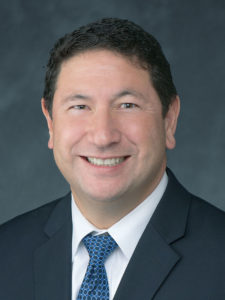NATIONAL REPORT—As the year began, it was business as usual for hotel brokers—transactions were closing, new opportunities were emerging—but then the coronavirus pandemic reared its ugly head. Sales have been few and far between, and there is no timetable as to when the industry will recover. This has weakened the transactions market, although smart buyers still can get some great deals.
“While many major institutional investors have become increasingly cautious and hamstrung by logistics such as air travel, many local private investors have become more active. With numerous institutional investors hitting the pause button, a lot of private investors see the reduced competition for high-quality assets as an opportunity,” said John Chang, SVP and national director of research services for Marcus & Millichap. “The other thing driving the market is the low interest rates that are currently available. Investors are trying to lock in these rates while the opportunity is available. In addition, the impact of the fiscal stimulus and its support of the travel, tourism and hospitality sectors have the potential to sustain the sector over the short term until travel resumes.”
Charlie Fritsch, president of MBA Hotel Brokers Inc., noted, “The markets that experience immediate and severe revenue drops from greatly reduced travel will see the biggest transaction declines until distressed valuations are attractive enough to draw well-capitalized investors back into those markets, or the markets recover sufficiently. Those buyers who take a longer-term view and are willing to buy now may be rewarded with better pricing and better financing as the Fed lowers rates to keep the economy afloat.”
Brandt Niehaus, president of Huff, Niehaus & Associates, pointed out that revenues will drop significantly, which will weaken the value of hotels on the market.
“The outbreak will have a dramatic effect because revenues will be down in Q1 and early Q2, showing negative revenue trends versus the same period in 2019,” he said. “Falling revenues on assets for sale have a negative effect on hotel values, which, in turn, will affect transactions. Many sellers will wait to sell after the numbers recover. For those sellers wanting to sell in 2020, there will be fewer hotels on the market, which is good for them. But, there will be opportunity for buyers because the economy will recover nicely by year’s end and in 2021.”
Earle Wason, president of Wason Associates Hospitality Real Estate Brokerage Group, said that when the coronavirus pandemic is over, “there will probably be some pent-up demand from guests and more travel in the United States, so revenues may actually strengthen and values may hold or increase.”
Before the pandemic threw the industry into chaos, all of these companies were performing at or near the levels of 2019 during the same time period.
“As one can imagine, we started the year with a great deal of enthusiasm,” said Wason. “We had two properties under agreement to close soon, and a number of very likely hotel and resort sales based upon the lack of inventory. Inventory still remains low but caution is the keyword, and we have two Letters of Intent negotiated that the buyer is now holding off to get a better feel as to where the economy is headed.”
Niehaus noted that his company’s first-quarter 2020 “looked to be running about 75% of the same period in 2019,” while Fritsch said, “MBA Hotel Brokers’ transactions and activity for 2020 [through the beginning of March]were looking to be about the same as last year at the same time. However, the rapidly changing economic environment with the coronavirus pandemic, oil price/barrel collapse and stock market drop will change the hotel transaction market for the balance of this year.”
Chang is optimistic that transactions that were in the process before the pandemic hit will still close, and that the changes in interest rates are helping move them along.
“Coming into the spread of the coronavirus, the hospitality sector was in a very strong position, so the starting line was positive,” he said. “We are still in the early stages of this transition, so the transactions market is carrying the tailwind of deals that were in the pipeline. Some transactions are facing some turbulence, but the majority are moving forward—especially transactions being conducted by seasoned and experienced operators. The lower interest rates have been a significant positive factor supporting investor activity.”
While both Fritsch and Wason agree that the cycle is in the buyer’s favor, they disagree somewhat on when exactly that happened.
“It was neutral, although many sellers had been still thinking it was a seller’s market,” said Fritsch. “Now, I believe it will shift to be a buyer’s market. Those buyers with the experience and cash to weather this economic storm will be looking for bargains from sellers who do not have the fortitude, cash or experience to manage their hotels through the drop in demand and economic slowdown.”
Wason pointed out that it has been a seller’s market for a number of years, but “that was starting to change before the coronavirus scare.”
He continued, “The signs of overbuilding have begun to show. Many of the new-builds are dropping rates even though they have a high basis per room, and that is affecting older hotels and what room rates they can charge. Therefore, the likelihood of lower net operating incomes are considered even though the actual capitalization rate may not have changed much.”
Chang provided a different perspective. “I would not characterize the current market as either a buyer’s or seller’s market. Despite the health- and financial-related issues that are still evolving, both buyers and sellers are calibrating to the new climate,” he said. “Lower interest rates are enticing additional investor activity, while some other buyers are moving to the sidelines. Sellers are likewise carefully considering their investment and portfolio strategies, with some placing activity on hold while others choose to prune portfolios.”
Niehaus, on the other hand, debated whether asking if it is a seller’s or buyer’s market is really an appropriate question for the industry.





